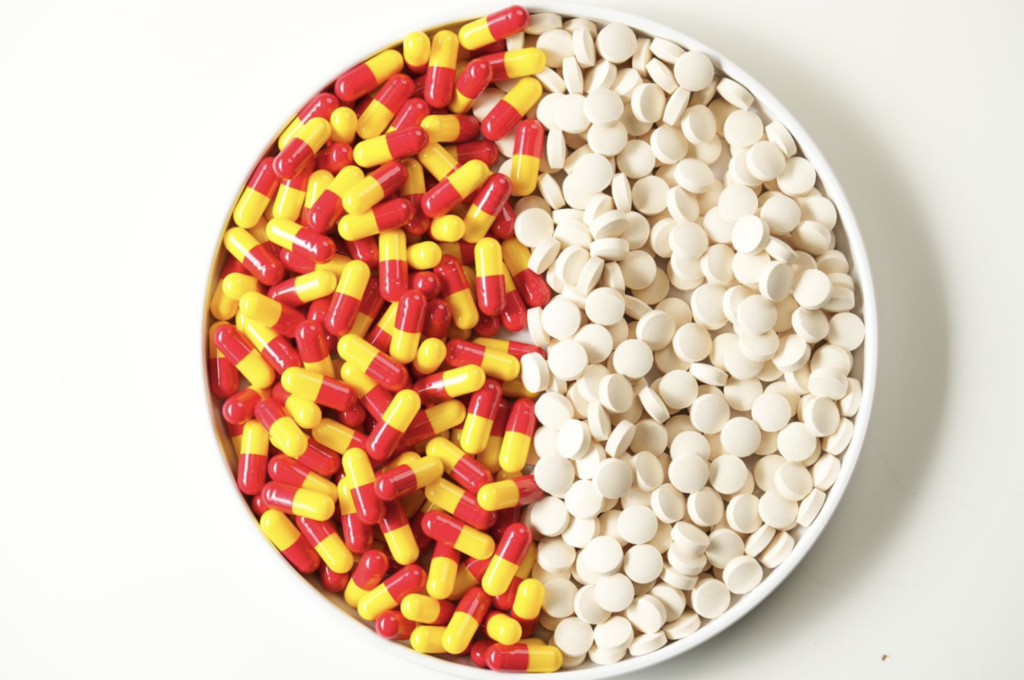
Introduction
When it comes to pharmaceutical products, there are numerous factors to consider when deciding on the best delivery method for your brand. Capsules and tablets are two popular options, each with their own unique benefits and drawbacks. As a brand owner or supply chain manager, it’s important to understand the differences between these two formats to make an informed decision that aligns with your brand’s goals and values.
In this blog post, we will explore the pros and cons of capsules and tablets, providing you with the knowledge you need to choose the right format for your brand. Whether you’re a procurement professional, a buyer, an innovative supply chain manager, or a private label project manager, this guide will help you navigate the decision-making process.
Section 1: Capsules
Capsules have gained popularity in the pharmaceutical industry due to their versatility and ease of use. They consist of a gelatin or plant-based shell that encloses the active ingredients in either powder, liquid, or small solid forms. Here are three key advantages of using capsules:
- Enhanced Bioavailability: Capsules offer improved bioavailability compared to tablets. The shell of a capsule quickly dissolves in the stomach, allowing for rapid absorption of the active ingredients. This is particularly beneficial for medications that require fast-acting effects or have poor solubility.
- Customization: Capsules provide great flexibility in terms of customization. They can be easily filled with various combinations of active ingredients, allowing for personalized formulations. This is especially advantageous for brands that cater to specific patient needs or target niche markets.
3. Masking Unpleasant Tastes or Odors: Some medications have a bitter taste or unpleasant odor, making them difficult for patients to swallow. Capsules offer an effective solution by encapsulating the active ingredients, masking any undesirable qualities. This can improve patient compliance and overall satisfaction. Despite these advantages, capsules also have some limitations. They may not be suitable for medications that require a prolonged release or have large doses. Additionally, the manufacturing process for capsules can be more complex and time-consuming compared to tablets, potentially resulting in higher production costs.
Section 2: Tablets
Tablets have long been a popular choice for pharmaceutical brands due to their convenience, stability, and cost-effectiveness. They are produced by compressing powdered active ingredients along with excipients, which provide binding and disintegrating properties. Let’s explore three reasons why tablets might be the right choice for your brand:
- Controlled Release: Tablets can be designed to release the active ingredients in a controlled manner, providing a sustained effect over an extended period. This is particularly beneficial for medications that require a slow release or a specific release profile, such as extended-release pain relievers or once-daily formulations.
- Stability and Shelf Life: Tablets are generally more stable than capsules, as their solid form protects the active ingredients from moisture and environmental factors. This leads to a longer shelf life, reducing the risk of product spoilage or degradation. Tablets are also less prone to breakage or damage during handling and transportation.
3. Cost-Effectiveness: Tablets are typically more cost-effective to manufacture compared to capsules. The production process is streamlined and efficient, resulting in lower production costs. This cost advantage can be especially important for brands targeting price-sensitive markets or aiming for higher profit margins. However, tablets also have their limitations. Some patients may have difficulty swallowing tablets, especially those with larger sizes. Additionally, certain medications may not be suitable for tablet formulations due to their chemical properties or dosage requirements. It’s important to consider these factors when deciding on the best format for your brand.
Section 3: Making the Decision
Choosing between capsules and tablets for your brand ultimately depends on various factors, including the specific medication, target audience, and marketing objectives. Here are three key considerations to help guide your decision-making process:
1. Patient Preferences: Understanding your target audience’s preferences is crucial. Conduct market research or gather feedback from healthcare professionals to determine if patients have a preference for capsules or tablets. This can help ensure patient satisfaction and compliance with medication regimens. 2. Formulation Requirements: Consider the specific formulation requirements of your medication. Does it require fast absorption, controlled release, or a specific dosing profile? Evaluate whether capsules or tablets align better with these requirements, taking into account factors such as bioavailability, stability, and ease of manufacturing. 3. Brand Image and Marketing Strategy: Your brand image and marketing strategy play a significant role in determining the appropriate format. Capsules may be more suitable for brands that prioritize customization, personalization, and a premium image. On the other hand, tablets may be a better fit for brands aiming for cost-effectiveness, convenience, and broad market appeal. By considering these factors and weighing the advantages and limitations of capsules and tablets, you can make an informed decision that aligns with your brand’s goals, target audience, and medication requirements.
Conclusion
Capsules and tablets are both popular choices for delivering pharmaceutical products, each offering distinct advantages and limitations. Capsules provide enhanced bioavailability, customization options, and the ability to mask unpleasant tastes or odors. Tablets, on the other hand, offer controlled release, stability, and cost-effectiveness. By carefully considering patient preferences, formulation requirements, and brand image, you can select the format that best suits your brand’s needs. Whether you choose capsules or tablets, PharmaCenter is your trusted partner for custom manufacturing and private label services, ensuring the highest quality and compliance with industry standards.
